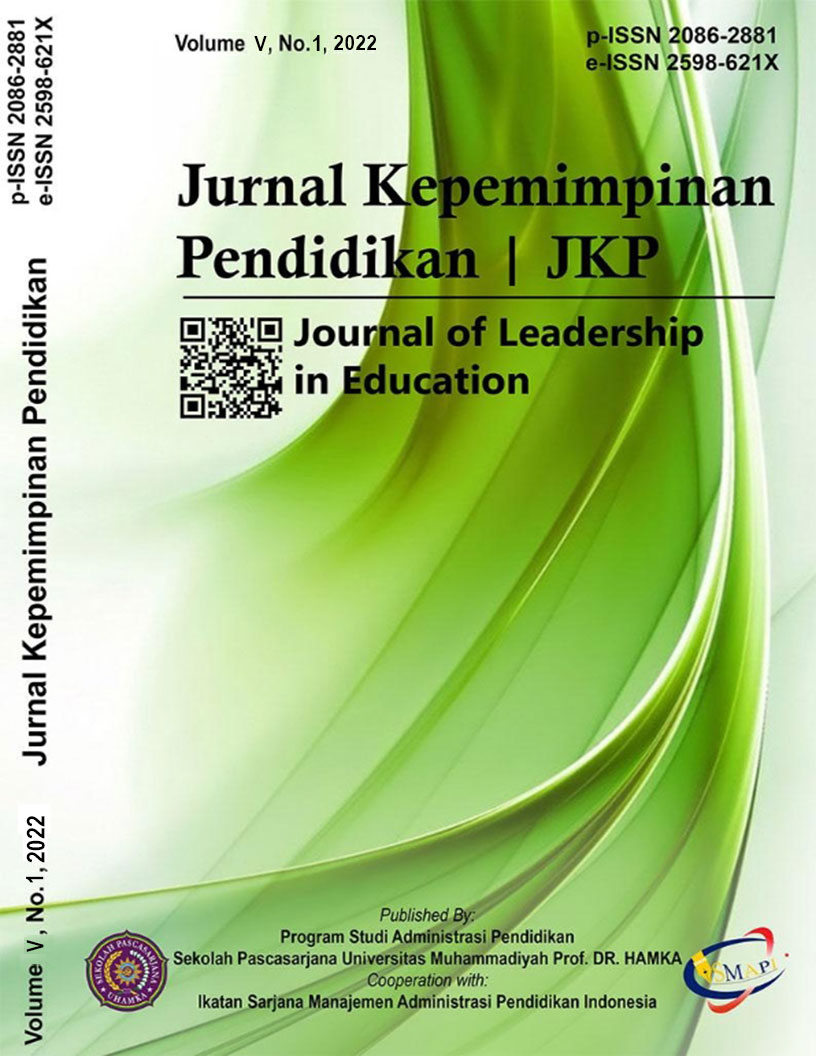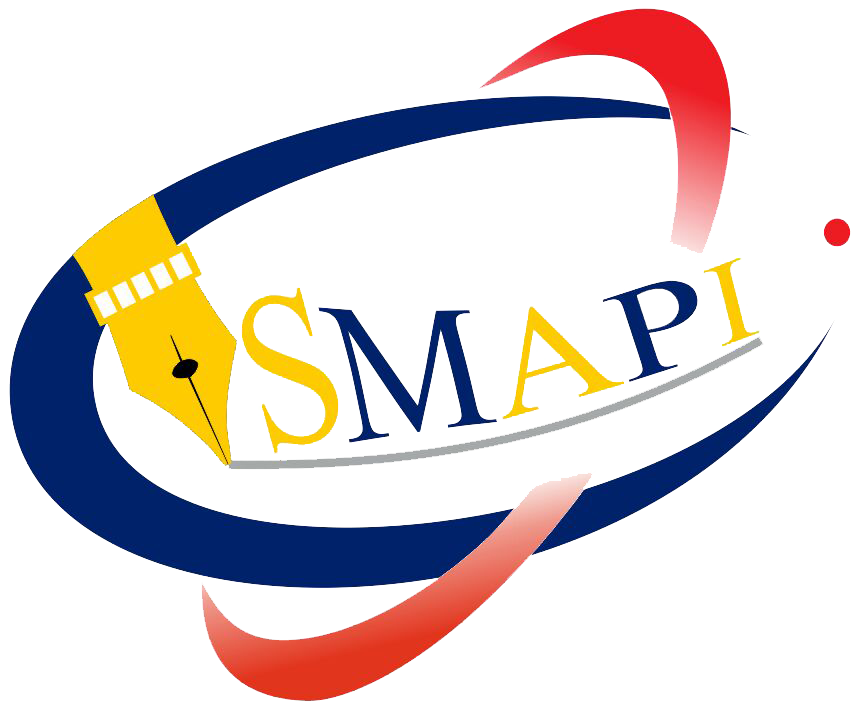EVALUATION OF ADIWIYATA PROGRAMS
DOI:
https://doi.org/10.22236/jkpuhamka.v5i1.9234Keywords:
program evaluation, adiwiyata, environmental culture care schoolAbstract
This research was conducted to evaluate the effectiveness of the Adiwiyata program from the analysis of needs, objectives and indicators for program implementation, competence of teachers and students, the availability of infrastructure, implementation of the curriculum, the implementation of Adiwiyata program activities, and the results of the Adiwiyata program implementation related to attitudes and behavior of school members towards environmental awareness. This type of research is evaluative research with a qualitative approach. Data collection was carried out using interview, observation and documentation techniques. The results showed that the analysis of program needs was based on recommendations from the Tangerang City Environmental Office (DLH), as well as to facilitate a clean culture that has long been implemented by schools. The objectives of the program in general have been implemented effectively but the aim of providing skills to students in processing waste has not been going well. The supporting infrastructure for the Adiwiyata program is quite complete, but the fish pond and compost house are in poor condition. The curriculum on the environment has been integrated into the KTSP and the 2013 Curriculum but the implementation in intracurricular and extracurricular activities has not been effective. More than 70% of teachers have not inserted environmental material into the syllabus and lesson plans so that learning has not been effective. Clean Thursday, class pickets, plant care, community service and environmental hygiene competitions are environmental activities held by schools and run quite effectively. School residents are more concerned about the condition of the surrounding environment
Downloads
References
Afandi, R. (2013). "Integration of Environmental Education through Social Studies Learning in Elementary Schools as an Alternative to Creating Green Schools". Pedagogic Journal, 2 (1): 98-108.
Arifin, Z. (2016). Learning Evaluation: Principles, Techniques and Procedures. Bandung: Youth Rosdakarya.
Arikunto, S. & Jabar, C. S. A. (2014). Evaluation of Second Edition Education Program. Jakarta: Earth Akasara.
Daryanto. & SupRYin, A. (2013). Introduction to Environmental Education. Yogyakarta: Gava Media.
EBook. Accessed from http://www.menlh.go.id./informasi-mengenai-adiwiyata/ on 12 April 2017.
Fathurrohman, M. (2015). Innovative Learning Models: Design AlternativesLearning fun. Yogyakarta: Ar-Ruzz Media.
Fridantara, A. S. (2015). "Implementation of the Adiwiyata Program in SMA Negeri 2 Klaten". Thesis: UNY.
Ghony, D., & Almanshur, F. (2012). Qualitative Research Methodology (Revised Edition). Yogyakarta: AR-Ruzz Media.
Hamzah, S. (2013). Environmental Education: A Bit of Introductory Insights. Bandung: Refika Aditama.
Kantun, Sri. (2017). Evaluative Research as a Research Model in the Education Sector. UNEJ Journal. Economic Education: Scientific Journal of Educational Sciences, Economics and Social Sciences.
Ministry of Environment and Ministry of Education and Culture. 2012. Adiwiyata Guide to Environmental Care and Culture Schools.
Kurniadin, D., & Machali, I. (2012). Educational Management: Concepts and Principles of Educational Management. Yogjakarta: Ar-ruzz Media.
Leksono, S. (2013). Qualitative Research in Economics. Jakarta: Rajawali Press.
Maryani, Ika. (2014). "Adiwiyata School Program Evaluation in terms of the Aspect of Participatory Activities at SDN Ungaran I Yogyakarta." Journal of Elementary School Thought and Development, Volume 1, Number 3, April 2014, p. 225-229
Melyana, A. (2015). "Evaluation of the School Program with Environmental Insights and Natural Disaster Mitigation (SWALIBA) at SMA N 2 Klaten". Journal: UNY.
Moleong, L. J. (2017). Qualitative Research Methodology. Bandung: Youth Rosdakarya.
Monalisa. 2013. "Adiwiyata Program in a School Environment at SMP Negeri 24 Padang." Journal: UNP.
Novitantia, Risky. (2016). Evaluation of the Management of Environmentally Friendly Supporting Facilities and Infrastructure in the Adiwiata Program at SMP Muhammadiyah Yogyakarta. Jural: UNY.
Pasai, Miswar. (2019). "Impact of Forest Fires and Law Enforcement" Faculty of Law, Universitas Pahlawan Tuanku Tambusai. Journal of Heroes Volume 3 Number 1 Year 2020: 37.
Regulation of the State Minister of Environment of the Republic of Indonesia Number 05 of 2013 concerning Guidelines for the Implementation of the Adiwiyata Program.
Regulation of the State Minister for the Environment of the Republic of Indonesia Number 15 of 2012 concerning Guidelines for the Economic Evaluation of Forest Ecosystems.
Government Regulation No. 32 of 2013 concerning National Education Standards.
Rusdiana, A. H. (2017). Management of Educational Program Evaluation. Bandung: CV. Faithful Library.
Sagala, S. (2010). Learning Supervision in the Education Profession: Helping Teachers to Overcome Difficulties in Providing Quality Learning Services. Bandung: Alfabeta.
Setyowati, Lilik Eko. (2017). Empowerment of Teachers Towards Adiwiyata School at SD Negeri Sine 1 Sragen. Thesis: Graduate School of Muhammadiyah Surakarta
Sudjana, D. (2006). Evaluation of the Out-of-School Education Program. Bandung: Youth Rosdakarya.
Sugiyono. (2017). Educational Research Methods: Quantitative, Qualitative and R & D Approaches. Bandung: Alfabeta.
Tika, P., CS. (2014). Explore the World of Geography Class XI Senior High School / MA. Jakarta: Earth Literacy.
Law of the Republic of Indonesia Number 20 of 2003 concerning the National Education System.
Law of the Republic of Indonesia Number 32 of 2009 concerning Protection and Management of the Environment.
Wahyuningtyas, D, P. Harsasto. (2013). Adiwiyata Program Evaluation at SMAN 11 Semarang: Journal: UNDIP
Widoyoko, E. P. (2015). Evaluation of Learning Programs. Yogyakarta: Student Library.
Hero. (2011). Evaluation of Theory, Models, Standards, Applications, and Professions. Jakarta: Raja Grafindo Persada.
Yusron Akhmad, (2016). Implementation of Children's Character Education through the Adiwiyata Program at SDN Giwangan, Umbulharjo, Yogyakarta. Journal: UIN Sunan Kalijaga.















